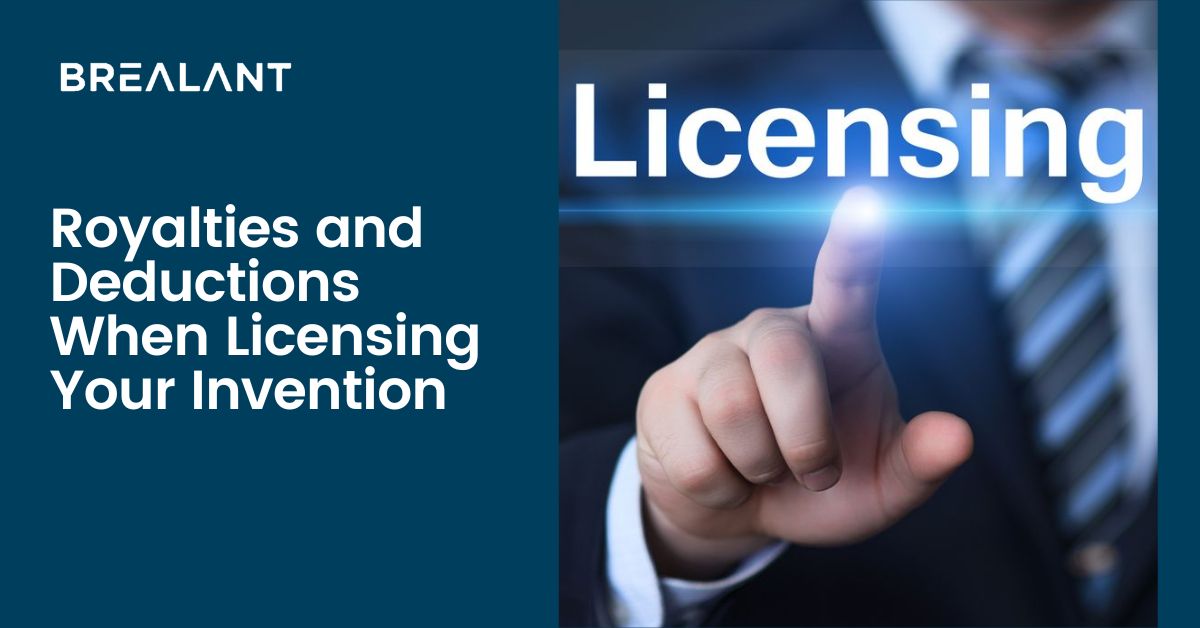

Inventors hold the special right to their inventions, which lets them earn royal payments through licensing. Licensing enables the inventor to remain the owner of the patent and enjoy the benefits of licensing it to the licensee (the buyer).
Usually, royalty payments vary according to the type of product they license. Depending upon the contract they make during licensing, a certain amount is deducted from the royalties for various purposes. In this blog, let us look at the royalties and the types of deductions they impose on royalties.
If you have an idea to invent something, you can license it to others so that they can manufacture it and market it. This process is called licensing. The licensor (inventor) gets some profit from the licensee (buyer) based on the net sales the licensee makes from the product. If the net sales are higher, the licensor gets more profit (royalty), and vice versa in case of lower sales.
The royalties are meant for using or marketing the inventor's property with their permission. Royalties are believed to be beneficial for inventors. However, the deductions affect the amount of money they get from royalties. Deductions are made according to various factors. Read on to learn more about deductions and their types.
Royalty deductions are so many types. Some are the most common and agreeable, while others may not. Let us look at the deduction types and how to manage them.
The licensors must understand the necessary deductions from the net sales and their limits. Since royalties are important for the licensors, he should be very clear about the limit of deduction amount at the time of making the license agreement. He should precisely mention the deduction amount in terms of the percentage of the product's gross sales. If the license agreement is transparent about the deduction limits, unnecessary deductions from the royalty amount can be avoided.
Royalties mean so much for the licensors, as they may be an important income stream. A licensor can be an artist, a singer, an author, or anyone who tries to generate income from their work or invention. A certain limit of deduction is acceptable to compensate for the expenses of a licensee. However, a licensor doesn't need to accept unreasonable deductions. I hope this blog gives you an overview of deductions, their types, and how to avoid unnecessary deductions.